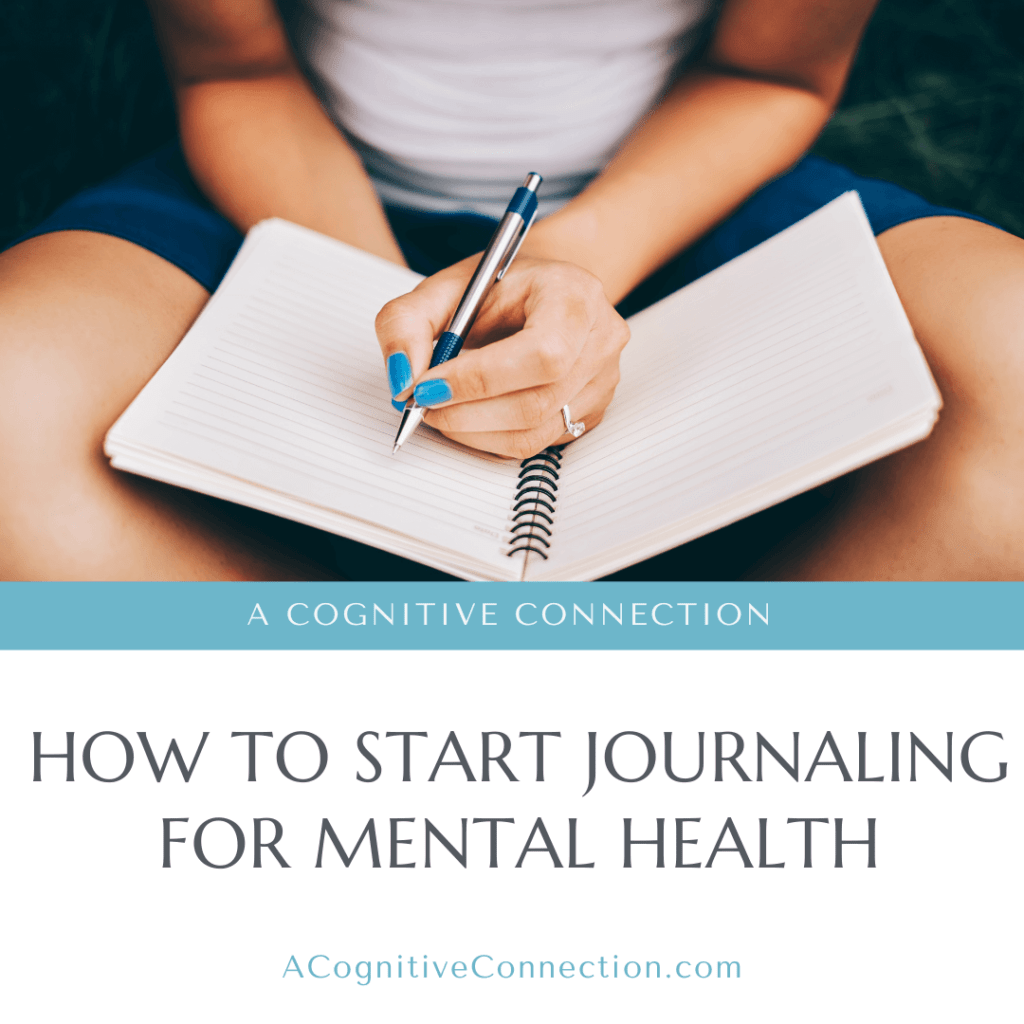How do you process difficult emotions? You may avoid your feelings by focusing on work or process externally by speaking to a loved one. But what happens when you don’t know how to express yourself or don’t feel comfortable sharing something? In these moments, journaling your thoughts and feelings can help you keep tabs on your mental health and recognize harmful habits and behaviors.
Journaling is a great way to practice self-care, manage stress, and even gain clarity on complex thoughts and emotions. It’s also a simple habit that anyone can start anytime, anywhere. Keep reading for tips on how to start journaling for mental health.
Journaling Benefits for Mental Health

Researchers believe that journaling can be a valuable addition to treatment programs for PTSD, depression, anxiety, and addiction. In a study of 34 mothers of children with behavioral issues, journaling also helped increase levels of gratitude and optimism after journaling regularly for six weeks.
Here are some of the top benefits of journaling for mental health:
• Increased self-awareness and insight into your thoughts, feelings, and behaviors.
• Improved problem-solving skills.
• Help identify triggers that cause stress or anxiety.
• Become more mindful in daily life.
• Process difficult emotions in a healthy manner.
• Connect with yourself on a deeper level.
• Increased feelings of calm and relaxation.
Tips for Starting a Journal
Starting a journal can seem intimidating, but following these tips will help you build a sustainable habit that can benefit your mental health for years.
1. Start small.
Don’t aim to write a novel or crowd your journal with too many expectations. Instead, permit yourself to write whatever comes to mind, and don’t worry about style, grammar, or even making sense.
Try writing for just 5 minutes a day at first about lighter topics. For example, write about your morning routine, then as you start to feel more comfortable, record how you were feeling while brushing your teeth and eating breakfast.
2. Write daily.
Daily journaling helps get you in the habit of expressing yourself and allows you to track progress over time. Writing about your thoughts, worries, or successes for just a few minutes can be enough to start tapping into your emotions with greater clarity.
Set aside time each day for writing—whether it’s first thing in the morning or right before you go to bed. Building journaling into your daily routine helps ensure that you always save space for it, even when life gets busy.
3. Don’t filter your thoughts.
Be honest and authentic when writing in your journal, even if you feel embarrassed or ashamed. If something seems silly or unimportant, don’t filter it out—write it down anyway. Unless you decide to share parts of your journal with a friend or therapist, it’s totally private. So allow yourself to express and process things that you usually wouldn’t.
4. Find a quiet place.

When journaling for mental health, finding a place to be alone and relax is essential. This could be your bedroom, a quiet spot in the library, or even your local park. Whatever works best for you—just make sure there are no distractions like music or TV.
Choosing a place where you feel comfortable, such as on your couch with your favorite blanket, can make journaling something you look forward to every day.
5. Be creative.
You don’t have to write complete sentences or paragraphs in your journal, so play around with different formats to see what works for you. Start by writing out a list of emotions you’re feeling, draw a picture or two, write a poem—anything goes!
6. Record your moods and symptoms.

Journaling can be a great way to track your mental health daily. Write down how you’re feeling throughout the day and note any warning signs that may indicate an episode of depression or anxiety, such as difficulty sleeping, feelings of worthlessness, restlessness, or racing thoughts.
This will help you quickly recognize patterns in your mental health and get the help you need.
7. Reread your entries.
As time passes and you fill up your journal, rereading or revisiting old entries can be helpful. This will allow you to reflect on what’s changed in your mental health journey—for good or for bad—since the last time you wrote something down.
You may also gain perspective and insight into how far you’ve come and your progress.
Journaling Techniques to Try
Once you get into the groove of journaling regularly, try experimenting with different techniques to keep it exciting and beneficial. Here are some ideas for creative journaling techniques:
• Dialogue journaling: Write a conversation between yourself and someone else, such as someone who has influenced you or your future self.
• Gratitude journaling: Take 10 minutes to write down three to five things you’re grateful for.
• Stream of consciousness: Write out your thoughts without any filter or judgment, even if it’s nonsensical or incoherent.
• Five-minute challenge: Give yourself a topic and write about it for exactly five minutes. Keep going until the time is up.
There are many ways to incorporate journaling into your daily routine and reap the benefits of improved mental health. So, give it a try, experiment with different techniques, and be consistent. With just a few minutes each day, you can start to feel better and more in touch with yourself.
Download Journaling Prompts for Mental Health from A Cognitive Connection
You don’t have to follow specific prompts or formulas to experience the benefits of journaling. However, prompts can provide a helpful place to start, especially if you’re new to journaling. The therapists at A Cognitive Connection have created a free journaling prompts resource to help you better understand how your thoughts and beliefs impact mental health. Download it today for three weeks of guided journaling.


